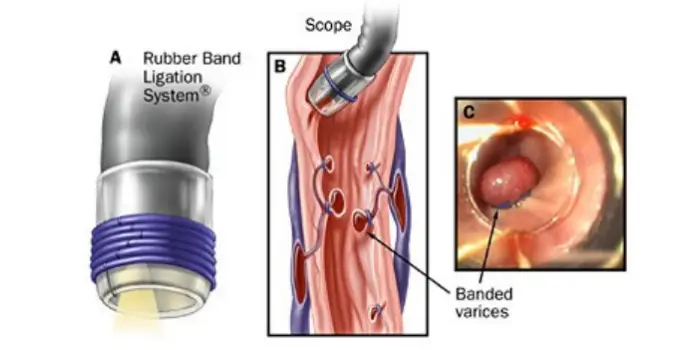- srushtigastro@gmail.com
- +91- 8073380392
Endoscopic Variceal Ligation

Esophageal varices are a serious complication of liver cirrhosis, a condition characterized by scarring of the liver tissue. Due to increased pressure in the portal vein system, blood may back up into smaller blood vessels, causing them to swell and become varices. These varices are prone to rupture, leading to potentially life-threatening bleeding.
Endoscopic variceal ligation is performed by a gastroenterologist using an endoscope, a flexible tube with a camera attached to it. During the procedure, the patient is usually sedated to minimize discomfort. The endoscope is passed through the mouth and into the esophagus, allowing the physician to visualize the varices. Small elastic bands are then placed around the varices using a special device attached to the endoscope. These bands constrict the varices, causing them to shrink and eventually fall off, leading to the cessation of bleeding.
EVL is often performed as a preventive measure in patients with known esophageal varices to reduce the risk of bleeding or as a treatment for active bleeding episodes. It is considered a safe and effective procedure with a low risk of complications when performed by experienced medical professionals.
We have the best liver doctor in HSR Layout to give you the best Endoscopic Variceal Ligation in HSR Layout. Contact us today.
Benefits:
Overall, endoscopic variceal ligation is an important treatment option for patients with esophageal varices, offering significant benefits in terms of bleeding prevention, survival improvement, and preservation of liver function.
Empowering assistance, right when it matters. We’re here to lend a hand whenever you need it.

Call : +91- 8073380392
srushtigastro@gmail.com
Srushti Gastro & liver Clinic 186, 165, 9th Main Rd, Sector 6, HSR Layout, Bengaluru, Karnataka 560102